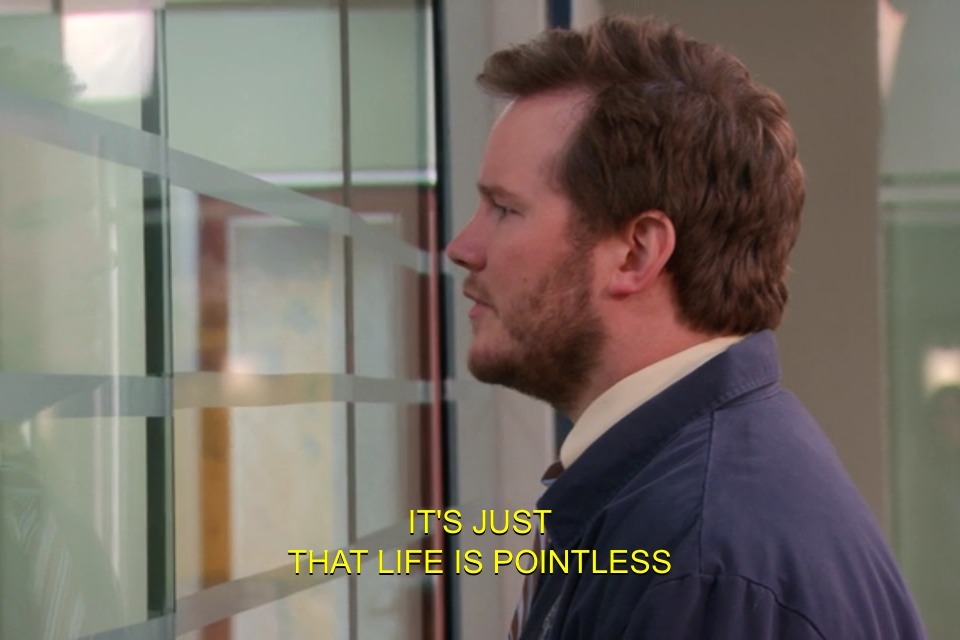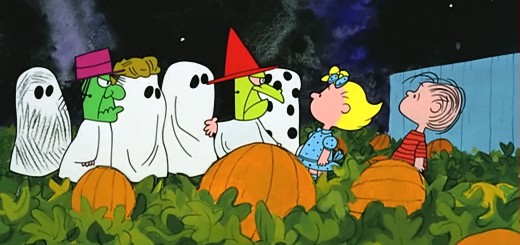Lasting Power in the Optimism of PARKS AND RECREATION
PARKS AND RECREATION was a show stuck between worlds. What started as a highly grounded mockumentary sitcom eventually transcended its own form into something as cartoonish as THE SIMPSONS. Not only did the tone fly off the rails in the most delirious and exciting ways, but the show’s reality got broken along the way with the lack of documentary crew acknowledgment, turning the talking head device into a Greek chorus-like, fourth wall breaking element. Coming at the eve of “binge watching” as a fad, aspects like this made PARKS AND RECREATION practically therapeutic with its heartfelt, near-direct viewer engagement and bubbly attitude. It was both an escape and a recontextualizing of the trials and tribulations of an effort-driven life that anyone could relate to. On an episode to episode basis, it rarely escaped traditional A-B-C story structure. This felt like a tragedy in comparison to the feats of magic its creators, writers, and crew pulled off on a season long-level. PARKS AND RECREATION’s lasting legacy deserves to come from its escorting of lively characters through dark alleyways of despair, defeat, and depression, only to never let go of its friendly embrace with the audience. A consistent air of “it’ll be okay” made the show something special, and true.
At its core, PARKS AND RECREATION is a show that explores human frustration. Its characters either had the most determined dreams and ideals, or were constantly searching for purpose. Aubrey Plaza’s April Ludgate and Chris Pratt’s Andy Dwyer are characters more known for their tone from the get-go. When the show finally began to flourish, their arcs aimed toward heavier themes: fears of growing old, responsibilities, dependency, and eventually, finding something to do for the rest of one’s life they can love. Even characters like Ron Swanson (Nick Offerman) and Tom Haverford (Aziz Ansari), as outlandish as they can get, eventually go through their own grounded struggles. The show simultaneously acknowledges how stupid life in its harshest blows can get, and the fact that this stupidity has to be dealt with.

Imagine your dog telling you this
In Andy’s case, the show spent a whole season following him through a newly found career goal: Andy wanted to be a police officer. His logical passion to help people out and do good for his community was made so apparent, but by the end of the season, he is reasonably denied the position despite all his want and effort. Instead of simply picking up his bags and moving on, the show lingers in Andy’s subsequent depression. It isn’t slight or cute. It’s rooted in the feeling of being lost and alone even when surrounded by loved ones. It treads upon existential ground that comedies of this tone would normally never dare explore. Unlike modern colleagues like BOJACK HORSEMAN or YOU’RE THE WORST, PARKS AND RECREATION never digs its heels into drama tonally, at least all the way. But it’s not ignorant. It establishes that the main lesson to learn from this show, episode to episode, and with no attempt to seem holier than thou, is to practice empathy no matter what. And as any fan will know, the “what” in that scenario is often insufferable.
Perhaps the most prescient element from the show’s run, in relation to recent political events, is the consistent arc and journey of Leslie Knope. The ringer that Amy Poehler’s protagonist is put through from the beginning to the end of this show is absurd, both tonally and structurally. Knope goes through an onslaught of blindly ignorant citizens, selfish bureaucrats, and comparatively heartless politicians, all while trying to simply do good for everyone. By everyone, Leslie means everyone, even the people that directly stand in her way. It’s idealistic, and Leslie Knope’s optimism can be so blinding that it could be mistaken for phoniness, though PARKS AND RECREATION never lands on an insincere note. We find Leslie in victory as much as we see her in defeat, defeat so unfair and misguided that it clearly marks a line in the sand between good and bad. Without being indulgent, the show wallows in the misery of defeat. It’s infectious, and a slog. Andy feels intense malaise. Leslie weeps, looks for control in any other sense of her life, and finds solace in her friends. It’s obvious a void is desperate to be filled, and it can stay that way for a while. It’s a show about feeling helpless. To be surrounded by utter incompetence and uncaring faces can be a strain, though Leslie consistently finds something, and someone worth fighting for.

New, uncontroversial anti-depressant: waffle
Recently, many people in America have been feeling lost and alone. The example Hillary Clinton set in her push to become the President mirrors the struggle of every woman in any workforce or industry across the world that are full of Jeremy Jamms and Sweetums Corporations, having to go through so much unnecessary, archaic turmoil for an iota of respect and a chance to bring some sense of justice to life. In wake of her defeat, millions of disenfranchised minority groups find themselves scared, unsure of their futures. In comparison, the plot of a sitcom doesn’t even come close to the dire nature of this worldly occurrence, but the lessons it teaches are certainly universal, and inflated by hard, blood-pumping heart. Adversity breeds communal empathy and understanding. Allies can be made; in fact, these people are being pushed together now more than ever, and to know they’re not alone is highly needed.
PARKS AND RECREATION’s default optimism in the face of despair is timely, and timeless. For those feeling hurt and confused, desperate for a temporary respite, PARKS AND RECREATION is a Linus blanket anyone can pick up. Leslie Knope felt her pain, assessed it, confided in her community, and fought on. That said, this goes without saying: These times will not be easy for everyone. The world has become a darker, scarier place for a whole lot of people, and PARKS AND RECREATION’s sincerity never really reaches awareness in this sense, where shows like VEEP, BLACK MIRROR, and even HOUSE OF CARDS look at the dumpster fire, who started it, and why (even if there is none). Sometimes, things are just not okay. Leslie’s story is light but genuine in these harsh truths. It might be a little vanilla, if looked to for comedy and sitcom structure, but its long-term effects are stunning, and worth remembering. It proudly emphasized that in spite of the hardest hardships, and the deepest of pits, life will go on, and that if one can fight, one must. As long as the heart is true, it will never be in vain.



